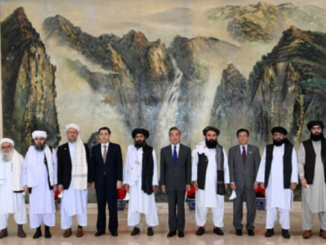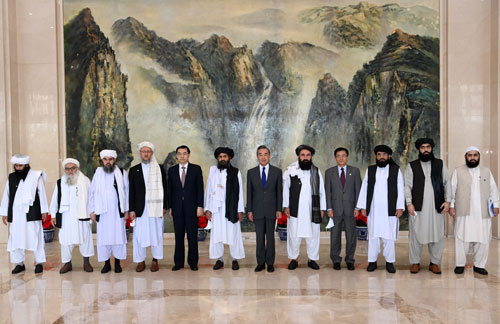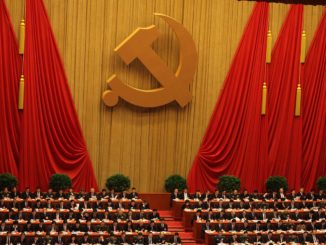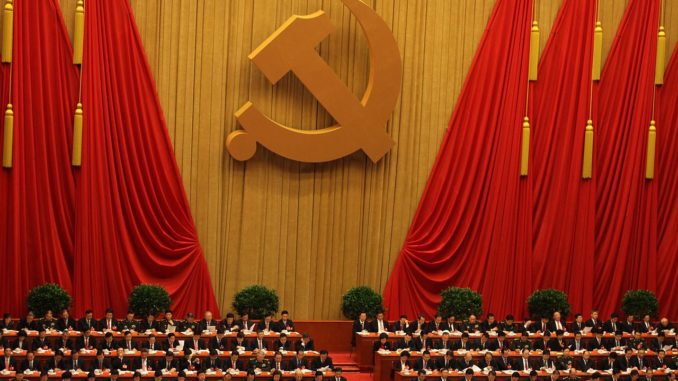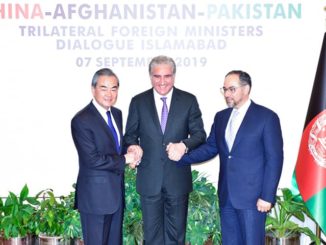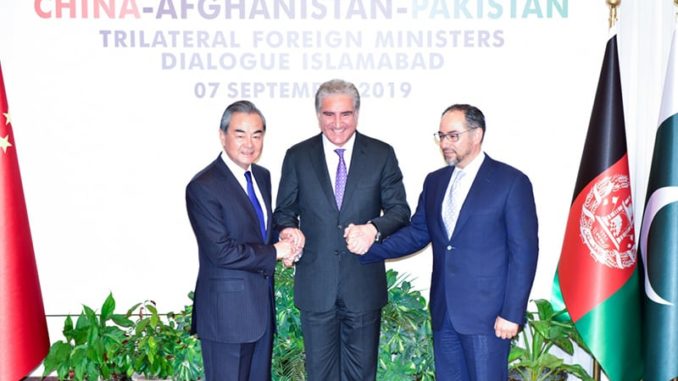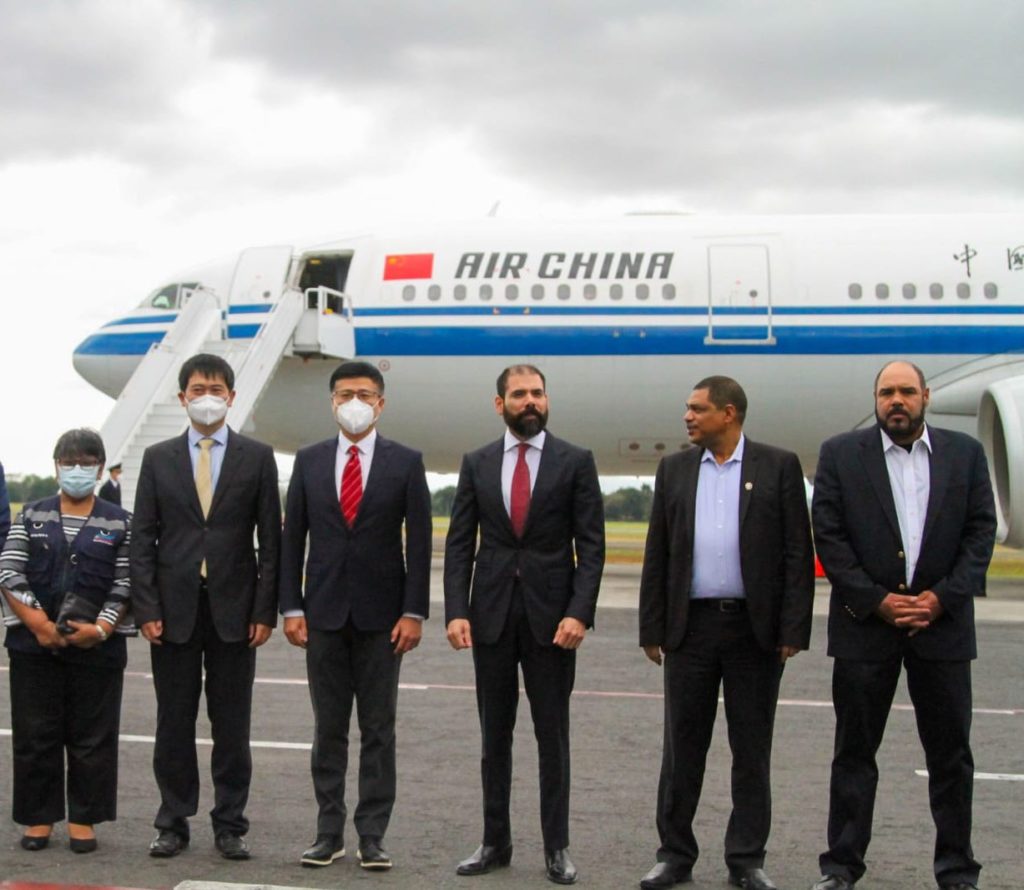
Nicaragua leapt forward to defend its national self-determination against U.S. global hegemony when it announced earlier this month it had discontinued diplomatic relations with Taiwan and was ready to join China’s Belt and Road Initiative.
“Nicaragua declares that it recognizes that there is only one single China in the world,” said Nicaraguan Foreign Minister Denis Moncada at the Third Forum between the Communist Party of China and Political Parties of Latin America and the Caribbean. There, the political parties leading the Chinese and Nicaraguan governments—both in the crosshairs of U.S. economic, diplomatic and military aggression—agreed to develop friendly relations.
This move opens up the small Central American country’s economy to the People’s Republic of China, a country of 1.4 billion people that is rapidly edging toward surpassing the United States and becoming the biggest economy in the world.
Taiwan: Washington’s Beachhead In China
Nicaragua’s move to recognize China is no different than what the United States, Japan and Canada voted in favor of in 1971 at the United Nations General Assembly. Resolution 2758 stipulated the United Nations “expel forthwith the representatives of Chiang Kai-shek” (the leader of the Chinese nationalists, whom the communists struggled against) and change China’s name as a member of the UN Security Council from the “Republic of China” to the “People’s Republic of China.”
Nicaragua first established relations with Taiwan in the 1990s, after U.S.-backed President Violeta Chamorro took power in 1989 in a surprise defeat for the Frente Sandinista de Liberación Nacional (FSLN). Taiwan is an island off the Chinese coast that Chinese right-wingers fled to upon the 1949 communist victory.
The United States replied to the move using the language of humanitarian interventionism it has deployed to exploit and destroy countries around the world.
“The Ortega-Murillo regime continues to make self-serving decisions at the expense of the Nicaraguan people, who stand to suffer from the loss of a reliable, democratic partner in Taiwan,” tweeted Brian A. Nichols, assistant secretary for Western Hemisphere affairs at the U.S. State Department. “We encourage the int’l community to continue strengthening its relationships with Taiwan.”
The Ortega-Murillo regime continues to make self-serving decisions at the expense of the Nicaraguan people, who stand to suffer from the loss of a reliable, democratic partner in Taiwan. We encourage the int’l community to continue strengthening its relationships with Taiwan.
— Brian A. Nichols (@WHAAsstSecty) December 10, 2021
Relations between the Biden administration and the Ortega government have recently taken a plunge. First, the United States intervened in Nicaragua’s elections by calling them a “sham” prior to Election Day and despite the presence of “232 international election observers,” said Michael Campbell, Minister Advisor for Foreign Affairs. After the FSLN won the election with 75.92 percent of the votes, U.S. President Joe Biden signed the “Reinforcing Nicaragua’s Adherence to Conditions for Electoral Reform Act of 2021,” also known as the RENACER Act. This law calls for the United States to monitor Nicaragua’s relationship with Russia as well as U.S. sanctions that would disrupt multilateral financing from institutions like the World Bank. Later, the Biden administration banned all Nicaraguan government officials, along with their spouses and children, from entering the United States.
Nicaragua is now the fourth country in the region to recognize China. Panama took the step in 2017, then came El Salvador and the Dominican Republic in 2018, and Honduras, which may make the same move after left-wing presidential candidate Xiomara Castro’s recent victory.
Recognizing one China comes on the heels of the Nicaraguan government’s decision to withdraw from the Organization of American States (OAS) on November 19.
“We have seen what the U.S. and the European Union are capable of doing and have to prepare accordingly,” Campbell said. “But it’s the FSLN government’s job to lead the Nicaraguan people toward development.”
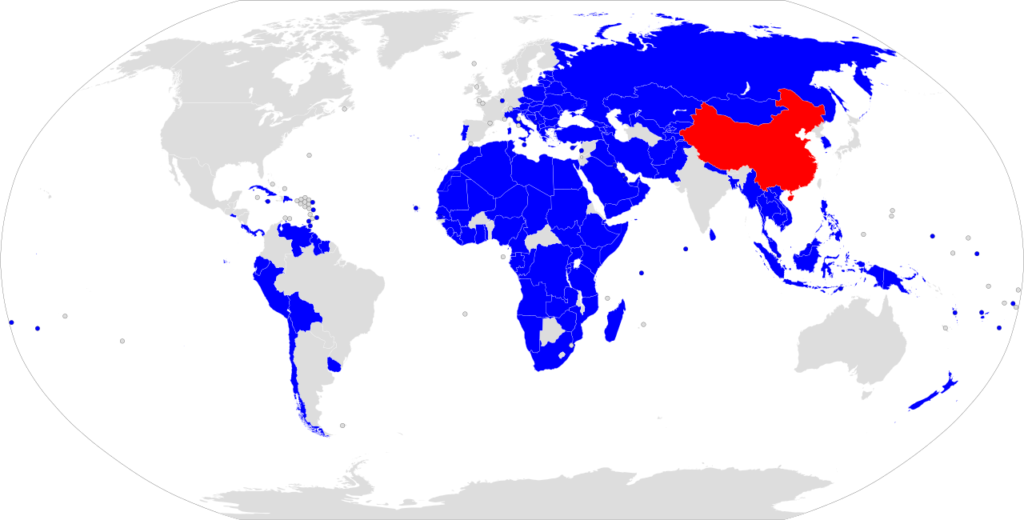
Nicaragua and the Belt and Road Initiative
The third China-CELAC Forum involved approximately 117 political parties and organizations from 30 Latin American and Caribbean countries. CELAC stands for Community of Caribbean and Latin American States. At the forum, they proposed strengthening their relationship and solidarity with China.
“Nicaragua actively supports and is ready to consult on Belt and Road cooperation documents, with a view to signing them as soon as possible,” Moncada said. In 2020, trade agreements between Taiwan and Nicaragua reached $168 million, while trade with China accounted for less than $50 million. A potential trade ceiling exists with the much-smaller Taiwan, with its population of 23 million.
In addition, the new initiative opens up markets for Nicaragua’s agricultural business.
“There is a lot of enthusiasm because communication channels have already opened up for the structuring of cooperation projects, commercial exchange and investment projects,” said Fausto Torrez. He leads international relations for the Rural Workers’ Association (Asociación de Trabajadores del Campo [ATC]).
The FSLN government has a record of working to ensure the rights of farmers, as well as of Indigenous and Afro-descendant peoples in the autonomous regions on the Caribbean coast. That includes bringing electricity and paved roads to these once-underdeveloped areas. The Red Nacional Vial, a 24,763-kilometer (15,387-mile) paved road, connects the Pacific Ocean coast with the Caribbean Sea coast. It has been touted as the key to connecting Nicaraguan farmers with international markets. The World Bank also praised the project for uplifting Afro-descendant people. “This region, before the road construction, could only be reached by air during most of the year owing to heavy rains and impassable infrastructure (the rainy season lasts nine months in that region),” a 2020 World Bank report stated.
Nicaragua belongs to the Central American Common Market (CACM), which includes Costa Rica, El Salvador, Guatemala and Honduras. The United States is CACM’s largest trade partner, while China is the second-largest.
“These agreements come in the framework of [defending] food sovereignty,” Torrez said. “Therefore, China arrives with many possibilities to improve the country’s situation.”
As some see it, China is repairing holes U.S. imperialism has left in the region.
“Latin Americans know only too well what imperialism looks like, in both its colonial and modern forms,” activist Carlos Martinez recently wrote. “They have witnessed CIA-sponsored coups from Guatemala to Chile, from Brazil to the Dominican Republic.”
The new wave of governments working with China are doing so based on mutual respect. In 2020, $315 billion in agreements between Latin America and the Caribbean (LAC) and China had been recorded.
“With projects such as the sea port on the Caribbean, improvements to our airports, roads, irrigation system and energy infrastructure, we will produce more and more efficiently,” Campbell said.
Nicaragua receives the first 200,000 doses of a donation of 1 million doses of Sinopharm vaccines. The batch arrived from China with a Nicaraguan delegation headed by @LaureanoOrtegaM, Minister of Finance Ivan Acosta, and Chinese Foreign Affairs Representative Yu Bo. pic.twitter.com/QF3thXADW5
— Kawsachun News (@KawsachunNews) December 12, 2021
China also has been at the forefront of providing the Global South with aid since the start of the pandemic. For example, between mid-February 2020 and June 2020, China donated $128 million worth of ventilators, test kits, masks, protective suits and many more life-saving items to Latin America and the Caribbean.
“This strengthens Nicaragua’s international relations in all fields,” Nicaraguan President Daniel Ortega said in his first public statement after the FSLN signed the agreement with the Communist Party of China (CPC). For example, the country’s National Human Development Plan will continue to prioritize poor and vulnerable sections of society, which includes rural producers. Campbell said this new relationship represents an opportunity to diversify exports in a large new market.
Two Revolutions
Ortega made clear the historic significance of acknowledging one China.
“It hurts (the United States) more when it comes to Nicaragua, which is a revolution meeting again with another revolution,” he said.
Both the FSLN and the CPC are products of national liberation movements against a colonial power. They agreed to develop friendly relations based on “mutual respect for sovereignty and territorial integrity, mutual non-aggression, non-interference in each other’s internal affairs, equality, mutual benefit, and peaceful coexistence,” stated the Chinese Ministry of Foreign Affairs.
Ortega also pointed out the hypocrisy of the United States demonizing countries that establish diplomatic relations with China while the United States continues to trade with China.
Yet, sanctioned and blockaded countries that establish ties with China weaken the U.S. stranglehold.
“Now is the time to improve and strengthen A.L.B.A.,” Torrez said of the Bolivarian Alliance for the Peoples of Our America, a political, economic and social alliance in defense of independence and self-determination in the Americas.
Abraham Marquez is a freelance journalist from Inglewood, California. He is a member of the National Association of Hispanic Journalists (NAHJ) and a 2021 University of Southern California Annenberg Center for Health Journalism Fellow.

